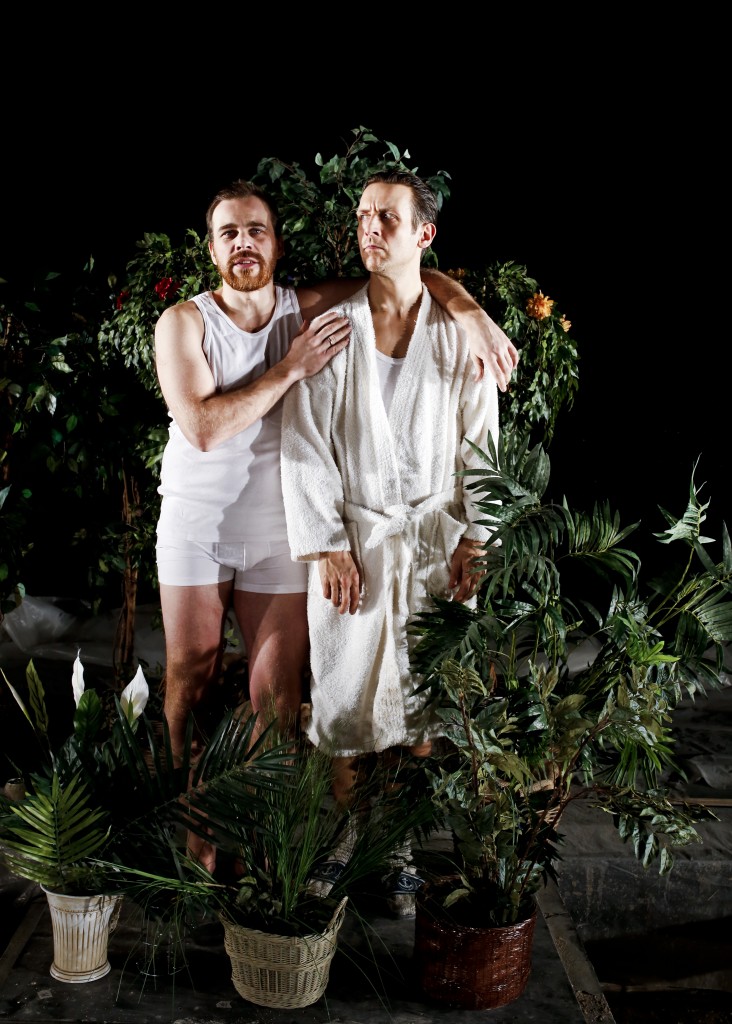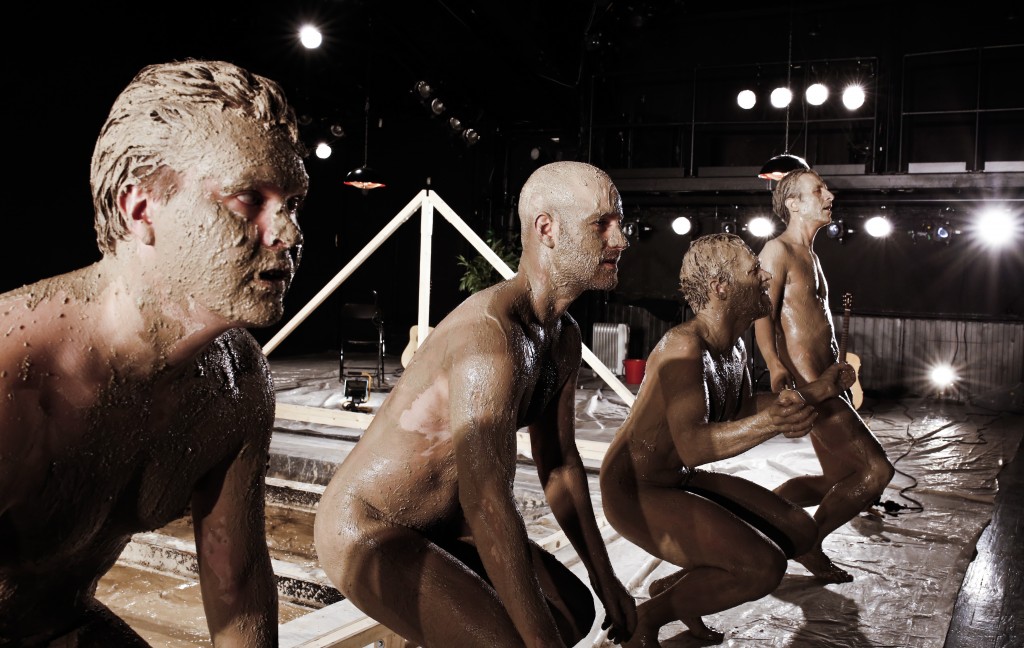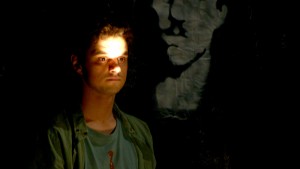We Chew on the Bones of Time: Terrorism beyond any representation
During eight years of active practice and research on the innumerable cells exploded out of the so-called “contemporary theatre”, almost all the preconceived ideas I had had as a spectator, and later as a critic, deformed and changed completely as I was challenged by an adventurous journey through such a shifting landscape. Over the last few months, the products of all the participants of the Young Journalists Online project have tried to explain national situations and systems, underlining and letting emerge an astonishing variety of trends, drifts and – sometimes – agendas.

In 2006, Routledge published a very interesting collection of essays under the title of Contemporary Theatres in Europe: A Critical Companion. The intention of the editors Joe Kelleher and Nicholas Ridout, according to their introduction to the book, was “to offer a range of different ways of thinking and writing about the kinds of encounters that take place, these days, in the theatre”. One could summarize the methodology followed in that book as an investigation based on two core concepts: mobility and collection. Trying to, on the one hand, preserve the inner plurality of the contemporary discourse on performing arts, and, on the other hand “a sense of a cultural and institutional tradition of theatre making in Europe”, a group of theatre critics was encouraged to travel to other countries to see and report on plays not directly connected to their cultural and historical background. As a matter of fact, in such faraway context a clear detachmenta common line of attention to be oriented to certain common weightier topics would appear. If we project the linguistic root of the word collection on a double layer of the discourse (the action of gathering objects and the attempt to complete a certain task pursuing a plural approach), the association of those two keywords seems to address the fundamental assignment of the whole YJOL group. We are in fact encouraged to challenge our way of seeing and thinking theatre — made competent and reliable by an intensive territorial practice — within an encounter with faraway contexts.
I believe that the same attitude as the one of the contributors to the Kelleher/Ridout survey was adopted by this group in confronting an established event such as the Terrorisms Festival in Stuttgart.
As a matter of fact, the play We Chew on the Bones of Time, written (together with the Norwegian dramaturg Olav Torbjørn Skare) and staged by the Danish director Jonas Corell Petersen, featuring cast and crew from the Nationalteatret Oslo, can be accounted as evidence of how the term “terrorism” can be transferred into a broader discourse about history, about memory, about war and peace considered both as external and internal conditions. “Four people, a guitar, some mud and some melancholy”, this is the claim, this is in fact the opening scene, with four men wearing underpants sitting at the angles of a square that delimits the stage, clumsily picking on four guitars. In the centre, a partly hidden construction site, with spare pieces of woods, a little pool of mud and a cement mixer on the left. An absurd atmosphere will also be the cornerstone of the whole performance, in terms of language (crazily mixing English, Norwegian and German), structure of dialogues and reasoning. After enumerating a list of 158 “Ideas for Leisure Activities” — projected on the back wall — the situation evolves into the hilarious account of a group seminar that involved the four people on stage, sort of a motivational training camp for employees. No clues are given about the contest or the background of these non-characters, rather figured as four angles of the same archetypal being.
The absurd and humourous tone helps the audience to embark on a wild-eyed trip, back to the very origins of social behaviour, rolling down through the jungle of religious phenomena and ending up into the representation of a distorted future in which the human being is forced to order the reality in a new set of rules, totally ungovernable.

There may be no point in going through the numerous allusions and references of the text, able to support a two-hour- and-45-minute-long performance of pure and naked presence. It is instead compelling to analyse the interaction with an audience gathered around a thematic festival. Functional and successful was the choice of writers to create a new language from scratch, sprinkling a major topic on the potential power of interaction between the performers and between them and the spectators, treated here as a bunch of expectations to be eaten grape by grape. The quest is to find “a sense of direction” because “it’s difficult to find your way when there are no landmarks”. “So you need a smile”. That smile sets the tune for the entire first act of the show, to the extent that during the intermission the audience in the foyer seemed confused about the very nature of their presence, and about their active participation in this exchange of ultimate hope. The second part was far more serious, crumbling down in a desperate deconstruction of the performer’s inner self, made even more cruel by the contrast of watching them actually build a concrete structure on stage. Thus, the quest for direction becomes a quest for individuality, a fatiguing search for a safe place to imagine a new way of living.
Such a delicate dialectic balance between representation and presentation brings up some very subtle definitions coming from semiotics of theatre as a (still) evolving science: in the text, the characters have the same name as the performers; from the post-show discussion we learn how the writing has been going hand by hand with all the other elements and media of the show; the progression of the whole narrative and philosophical lines continuously builds up and smacks down the conventional structure of a ‘character’ as something separated from the actors appointed to embody it. Here, the distance between a ‘theatre of representation’ — where a separate reality is organized on stage — and a ‘theatre of presentation’ — led by plain self-reference — is “chewed” by a montage of frames characterized by a total slipperiness in meaning, reference and even in the very nature of the relationship to be kept with the spectators. This is a kind of theatre that is a “production” rather than a “product”, and is a “process” rather than a “result”.
In this sense, keeping the texture of dramaturgy at this level of openness encourages the spectator to grasp the meaningful elements for themselves, to be balanced on their individual background and idea of the themes generated by the text and the action themselves. The show was commissioned by the UTE Conflict Zones project, and through this line of work it replies perfectly to the initial question, which appeared to be to investigate terrorism and the related fear as endemic features of our society. The solution found by We Chew On the Bones of time is to address the spectators with a clever and successful application of “free will”: they were actually allowed to bring home a meaning of their own. Successfully honouring the contract of a thematic festival, this play models the idea of “terrorism” on the representation of a general urgency of stability, the general search for individuality that affects the present European society. Through such a charming theatrical code, such themes are turned into a field of experience that each spectator has to cross, being constantly aware of a personal background, which suddenly becomes an active part.
Going back to the beginning, there is another definition proposed by Kelleher and Ridout in the foreword of their book: “On the one hand, the contemporary might bethought of as the time of the encounter; the time around a particular theatrical experience in which you might be enfolded. […] It could be thought of as a longer time, however — the time of thought and research around a particular event or, indeed, a particular theatrical practice. The different temporalities of the performer and the spectator might be worth thinking about”. And that’s exactly what this production does, highlighting our special (and most likely non-objective) idea of the real world as a place to pose our personal struggle between history and memory, and our reflections on fear and social responsibility, a form of collective conscience here seen as something productive and destructive at the very same time.
Published on 31 August 2015 (Article originally written in Italian)

